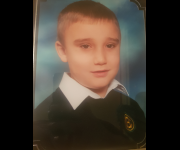There is a lot happening relevant to my autism and classical myth project at the moment, including some news I would like to share right now. I'm building up to sharing more still during Autism Week (29 March-4 April).
The Our Mythical Childhood project, for which I'm creating materials for autistic children, includes students at various stages along their academic journeys, not least undergraduate students from several universities such as Alessia Borriello from the University of Bologna. Alessia is pictured below during a team meeting in late December 2019 in Warsaw, just a few months before lockdown turned Alessia's role into a solely "remote" one.
This "mythical community" now includes two further trainees, Erika Ruminaite (below, above) and Adam Soyler (below, below). Both are University of Roehampton students who, as part of their studies for their History degrees, are taking placements with the project as part of the Historian at Work module during March and April 2021.
Erika and Adam will each be contributing to the project's activities around creating materials for autistic children. They are not able to join fellow team members around the table right now but - via social media, Zoom and so forth - they are working with colleagues at Warsaw, Bar-Ilan and Roehampton including conducting interviews with project members about their work using classical myth with autistic children (Adam) and organising an online event to be announced during Autism Awareness Week (Erika). There is more information about their roles here.



No comments:
Post a Comment